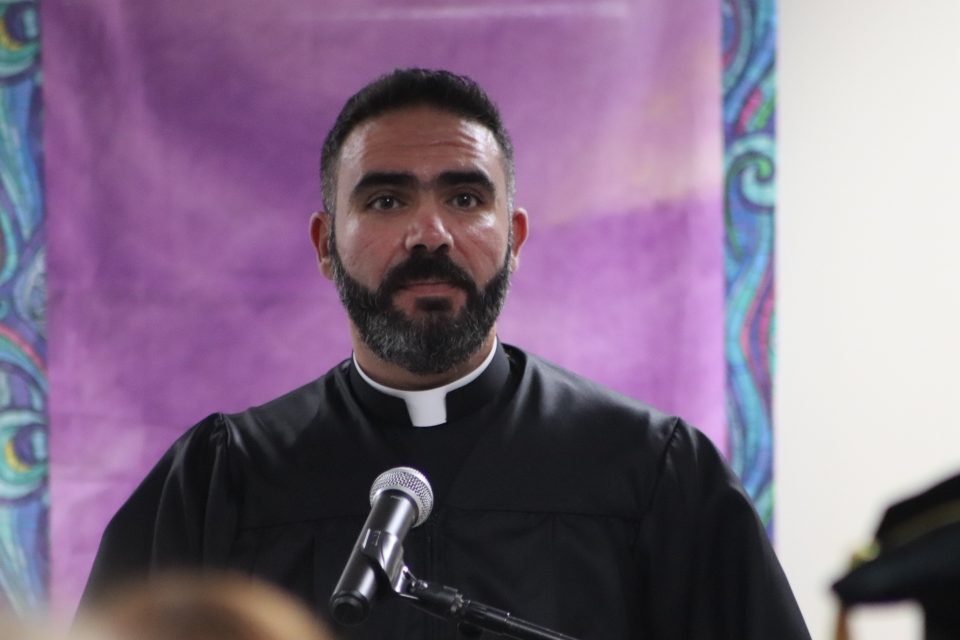As we near the end of April, we are speaking with Lutherans of Arab and Middle Eastern decent to amplify voices of our siblings in Christ and celebrate Arab and Middle Eastern heritage. Today we are speaking with Charbel Zgheib (he/him/his) who is currently located in Sacramento, Calif.
Responses have been edited for publication.
How are you connected to the ELCA?
I am connected to the ELCA through the desk of Arab and Middle Eastern Ministries. I’m a mission developer in the Sierra Pacific Synod and member of the Association of Lutherans of Arab and Middle Eastern Heritage (ALAMEH) as their treasurer.
How do you believe the ELCA can better support and uplift Arab American and Middle Eastern voices and perspectives?
I believe that the commitment of the ELCA to offer hospitality and support to Christians of Arab and Middle East descent is to invite them to be members of our congregations and support them in giving their gifts to the church. These are gifts that will enrich all members of the ELCA.
Using the language of hospitality to encourage a welcoming and inclusive attitude toward people of Arab and Middle Eastern descent should not be understood to suggest that they are not already equal members of the ELCA. Indeed, in the church “there is neither Jew nor Gentile, neither slave nor free, nor is there male and female, for you are all one in Christ Jesus” (Galatians 3:28). Through encouraging hospitality, we recognize the reality that the church will live in the confidence and God’s grace to embrace diversity and learning from each other. The ELCA will continue to uplift the ministry of the Arab/Middle Eastern American communities through financial support, and advocate communities that are grounded in faith, guided by love and connected to ELCA. They seek innovative ways to invite and unite individuals who seek spiritual, inclusive, safe, and missional church and community.
What aspects of Arab American and Middle Eastern culture do you see reflected in your church community?
Christians who have a direct connection to the lands of the Bible can often provide a helpful understanding of the context and meaning of biblical narratives and teachings. Their grasp of the relationships and situations in Jesus’ parables, for example, may come from having lived in similar settings. Their insights can bring understandings to their fellow Christians when they read and study the Bible together.
While most persons of Arab heritage in the United States are Christian, most Arabs living in the Arab world are Muslims. So, in their places of origin, immigrants to the United States from the Middle East have lived as religious minorities. They understand what it means to witness to their faith in circumstances where such witness may be viewed as alien to the dominant culture, forbidden or even dangerous. Their experience can strengthen the commitment-to-witness to Christians whose whole life has been lived in a predominantly Christian culture.
What do you pray for?
I pray for my upcoming ordination on May 6 and for Salam Radio Station to flourish and to be a real messenger of peace, love and diversity guided by the Holy Spirit and bringing more young diverse people to the church. I pray for the ministry of the ELCA, for peace in the Middle East, and especially for my family and my country Lebanon.
What gives you hope?
In this Easter season, as we are celebrating Jesus’ resurrection, I have hope in new beginnings and adventure with God. Today I can count on the Easter story and, regardless of what happened and will happen in my life, despite all the wounds, scars, bad experiences and despair, God works in mysterious ways and God’s grace is manifested in my life and this world. Let us keep our heart and eyes open!






